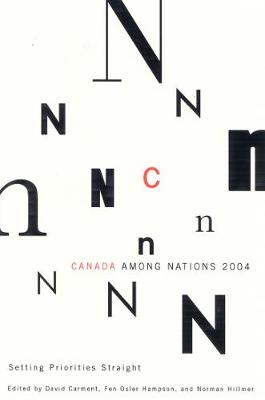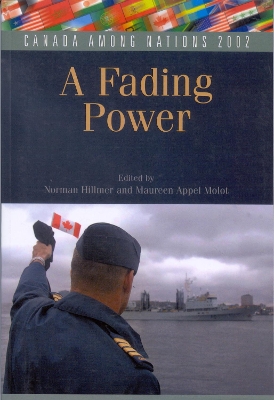Canada Among Nations
1 primary work • 2 total works
Book 6
Canada Among Nations, 2004
by David Carment, Fen Osler Hampson, and Norman Hillmer
Published 1 January 2005
An in-depth examination of the challenges confronting the new Canadian government as it charts a course in the turbulent world of international affairs.
This contributed volume explores the possibility that Canada's influence in the international community is on the decline given the changing orientation in international affairs and international priorities in light of September 11, 2001. Shortly after the 11 September terrorist attacks on New York and Washington, former Foreign Minister John Manley was biting his assessment of Canada's international performance over the last decade. Canada, he stated in an interview, is 'a fading power' that has continued to trade 'on a reputation that was built two generations and more ago.' In the minister's colourful language, 'You can't just sit at the G-8 table and then, when the bill comes, go to the washroom.' Manley then identified deficiencies in Canadian intelligence, military capacity, and level of development aid. Much of the evidence in Canada Among Nations 2002-and our subtitle, A fading power-supports the proposition that Canada's position in the world is not what it once was but there are also articulate statements that this is not the case. The events of 11 September did a great deal more than shatter the impression that North America was invulnerable to terrorism.
They also brought Canada-US relations to the forefront of Canadian consciousness once again, reviving the debate over issues of sovereignty. Is there a qualitative difference in the relationship since the fall of 2001 or are we simply witnessing the next steps in growing bilateral ties? How do we ensure the efficient movement to and from the US of goods on which Canadian prosperity depends, and at the same time maintain careful watch on what and who crosses the border? What does the new US emphasis on security mean for border management, including refugee policy, and long-term Canadian-American military co-operation? These are among the many issues examined in Canada Among Nations 2002.
They also brought Canada-US relations to the forefront of Canadian consciousness once again, reviving the debate over issues of sovereignty. Is there a qualitative difference in the relationship since the fall of 2001 or are we simply witnessing the next steps in growing bilateral ties? How do we ensure the efficient movement to and from the US of goods on which Canadian prosperity depends, and at the same time maintain careful watch on what and who crosses the border? What does the new US emphasis on security mean for border management, including refugee policy, and long-term Canadian-American military co-operation? These are among the many issues examined in Canada Among Nations 2002.

